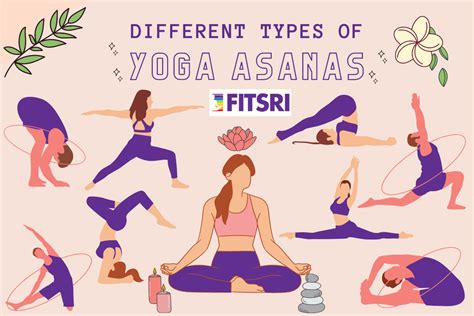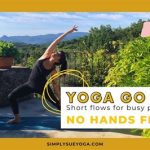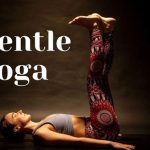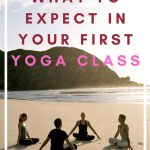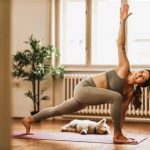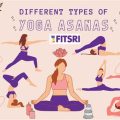4 Effective Yoga Practices for Busy People: Finding Balance in a Fast-Paced World
In today’s fast-paced world, finding time for physical and mental well-being can be a challenge. However, incorporating yoga into your daily routine—even with a busy schedule—can provide immense benefits, ranging from stress reduction to improved flexibility and strength. This article will explore four distinct types of yoga that are particularly suited for people with limited time, offering a balance between efficiency and effectiveness. Whether you are a beginner or a seasoned yogi, you’ll find practical insights to enhance your wellness journey.
Introduction
Yoga has evolved over thousands of years to address both physical and mental health, making it an adaptable practice for anyone, regardless of schedule. With increasing demands on time, many find it difficult to commit to long yoga sessions. However, not all yoga practices require hours of dedication. By understanding and choosing the right type of yoga, even the busiest individuals can reap the benefits of this ancient practice.
In this article, we’ll explore four yoga styles that are particularly effective for busy people: Hatha Yoga, Vinyasa Yoga, Restorative Yoga, and Yin Yoga. Each of these styles has its own advantages, offering both physical benefits and mental clarity within a short time frame.
Key Concepts
- Hatha Yoga: A slower-paced practice focusing on holding poses and proper alignment.
- Vinyasa Yoga: A dynamic flow that links breath with movement, ideal for a fast-paced lifestyle.
- Restorative Yoga: A deeply relaxing style that focuses on rest and recovery, perfect for stress relief.
- Yin Yoga: A meditative style that targets deep connective tissues, ideal for releasing tension.
Before diving into the specific yoga types, it’s important to understand a few core principles of yoga. Most yoga practices revolve around the balance of mind, body, and breath. The connection between these elements is central to unlocking the full potential of yoga, regardless of the style practiced.
Historical Context
The roots of yoga trace back over 5,000 years to ancient India, where it was developed as a holistic practice for physical, mental, and spiritual well-being. Originally, yoga was deeply connected with spiritual teachings, including meditation and ethical living. However, as yoga spread to the West in the 20th century, it gradually evolved into a more physical practice, focusing on postures (asanas) and breathing techniques (pranayama).
Today, yoga has been adapted to suit various needs and lifestyles. From intensive practices meant for physical conditioning to more relaxed forms aimed at mental tranquility, modern yoga offers a diverse range of practices. The four types of yoga explored in this article each have their origins in traditional practices but have been adapted to fit the needs of busy individuals.
Current State Analysis
With over 36 million practitioners in the United States alone, yoga continues to grow in popularity, particularly among individuals seeking physical fitness and stress relief. However, one of the main barriers to regular yoga practice is time. According to recent surveys, many people cite a lack of time as the primary reason they don’t practice yoga as often as they’d like.
That’s where the four yoga styles featured in this article come into play. These practices have been selected for their ability to deliver significant benefits in a relatively short amount of time. Whether you have 10 minutes or 30, each of these styles can be adapted to fit your schedule, allowing you to maintain both your physical health and your mental well-being without significant time investment.
Practical Applications
1. Hatha Yoga
Duration: 15-30 minutes
Best for: Beginners and those seeking a slower, more focused practice.
Key Benefits: Improves flexibility, strengthens muscles, reduces stress.
Hatha yoga focuses on holding poses for longer durations, giving practitioners time to align their bodies and concentrate on breathwork. It’s a great option for busy individuals because you can perform a handful of poses in a short session, focusing on deep stretching and muscle engagement. Even 15 minutes of Hatha yoga can help center your mind and body.
2. Vinyasa Yoga
Duration: 10-20 minutes
Best for: Individuals seeking a more energetic, flowing practice.
Key Benefits: Builds strength, improves cardiovascular health, enhances focus.
Vinyasa yoga, often referred to as “flow” yoga, connects movement with breath in a dynamic sequence. A short Vinyasa session can provide a full-body workout, making it a highly efficient practice for those with limited time. It’s especially effective for increasing energy levels and clearing the mind, which can be beneficial in the middle of a hectic day.
3. Restorative Yoga
Duration: 20-30 minutes
Best for: Stress relief and recovery.
Key Benefits: Deep relaxation, recovery from physical and mental stress.
Restorative yoga is a slow, passive practice that focuses on complete relaxation. Poses are held for long periods, often supported by props, which allows the body to fully relax and recover. For busy people, a short restorative yoga session can be an excellent way to decompress after a long day, helping to reset the nervous system and alleviate tension.
4. Yin Yoga
Duration: 15-30 minutes
Best for: Deep tissue stretching and emotional release.
Key Benefits: Improves flexibility, releases deep tension, enhances mindfulness.
Yin yoga focuses on stretching the body’s connective tissues, such as ligaments and fascia, by holding poses for several minutes. While it may feel passive, it’s incredibly effective for releasing deep-seated tension and improving flexibility. Yin yoga is particularly beneficial for those who sit for long periods, as it helps alleviate stiffness in the lower back, hips, and shoulders.
Case Studies
| Yoga Type | Time Commitment | Reported Benefits | Practical Example |
|---|---|---|---|
| Hatha Yoga | 15 minutes | Improved flexibility, reduced stress | A busy CEO integrates 15-minute Hatha sessions during lunch breaks to alleviate stress. |
| Vinyasa Yoga | 20 minutes | Increased energy, enhanced focus | A teacher uses Vinyasa yoga before the start of a busy school day to increase energy levels. |
| Restorative Yoga | 30 minutes | Deep relaxation, recovery from stress | An entrepreneur practices Restorative yoga in the evenings to unwind from a demanding workday. |
| Yin Yoga | 30 minutes | Released tension, improved mindfulness | A software developer incorporates Yin yoga to address back and hip stiffness from long hours of sitting. |
Stakeholder Analysis
- Yoga Practitioners: Can find tailored routines that fit their busy schedules without sacrificing the benefits of yoga.
- Health Professionals: Can recommend these practices to patients seeking efficient ways to improve physical and mental health.
- Yoga Instructors: Can create shorter, more focused classes that appeal to busy professionals.
Implementation Guidelines
For each type of yoga, the following implementation strategies can help you get the most out of your practice:
- Hatha Yoga: Focus on holding foundational poses such as Downward Dog and Warrior I for 30 seconds to 1 minute each.
- Vinyasa Yoga: Prioritize transitions between poses to maximize the flow. Short sequences like Sun Salutations are ideal.
- Restorative Yoga: Use props like pillows and blankets to support your body fully in poses like Child’s Pose and Reclining Butterfly.
- Yin Yoga: Hold poses like Pigeon or Dragon for 3-5 minutes to allow for deep tissue release.
Ethical Considerations
When promoting yoga to busy individuals, it’s important to emphasize that yoga should not be rushed for the sake of convenience. While these shorter practices are beneficial
